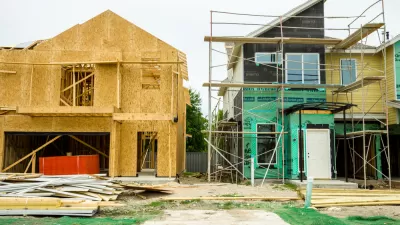A look at how the previous approval of the Hines Bergamont Transit Village project was rescinded after pressure from community activists, by real estate developer and consultant Michael Russell.

Trust is hard to come by for developers wanting to build projects in Santa Monica.
Builders recently learned that lesson the hard way when dealing with city officials and residents of the beachside community, according to real estate developer, consultant, and affordable housing advocate Michael Russell.
After approving the multimillion-dollar Hines Bergamont Transit Village development project earlier this year, the City Council recently changed course and voted 4-3 to rescind the approval. Community activists who objected to the project led an effort to get the approval reversed, writes Russell.
“Because the opposition collected at least 6,500 valid signatures — roughly 10 percent of the registered voters in Santa Monica — the City Council was required to reverse its decision or place the matter before the voters, either in a special election or in November.”
Developers work diligently to meet community demands but often feel like they are in a battle against NIMBYism they can’t win, Russell contends.
“If, as the landowner, you follow all the rules, there is an expectation that the process will yield a vote and, in most cases, a positive vote. If the city council takes a vote and it is positive, there is an expectation that that vote means something. Otherwise, as landowners, we need to give councilmembers lie detector tests.”
Russell goes on to chart the project’s progress and subsequent stalling.
FULL STORY: You Cannot Trust Santa Monica

Maui's Vacation Rental Debate Turns Ugly
Verbal attacks, misinformation campaigns and fistfights plague a high-stakes debate to convert thousands of vacation rentals into long-term housing.

Planetizen Federal Action Tracker
A weekly monitor of how Trump’s orders and actions are impacting planners and planning in America.

In Urban Planning, AI Prompting Could be the New Design Thinking
Creativity has long been key to great urban design. What if we see AI as our new creative partner?

King County Supportive Housing Program Offers Hope for Unhoused Residents
The county is taking a ‘Housing First’ approach that prioritizes getting people into housing, then offering wraparound supportive services.

Researchers Use AI to Get Clearer Picture of US Housing
Analysts are using artificial intelligence to supercharge their research by allowing them to comb through data faster. Though these AI tools can be error prone, they save time and housing researchers are optimistic about the future.

Making Shared Micromobility More Inclusive
Cities and shared mobility system operators can do more to include people with disabilities in planning and operations, per a new report.
Urban Design for Planners 1: Software Tools
This six-course series explores essential urban design concepts using open source software and equips planners with the tools they need to participate fully in the urban design process.
Planning for Universal Design
Learn the tools for implementing Universal Design in planning regulations.
planning NEXT
Appalachian Highlands Housing Partners
Mpact (founded as Rail~Volution)
City of Camden Redevelopment Agency
City of Astoria
City of Portland
City of Laramie




























